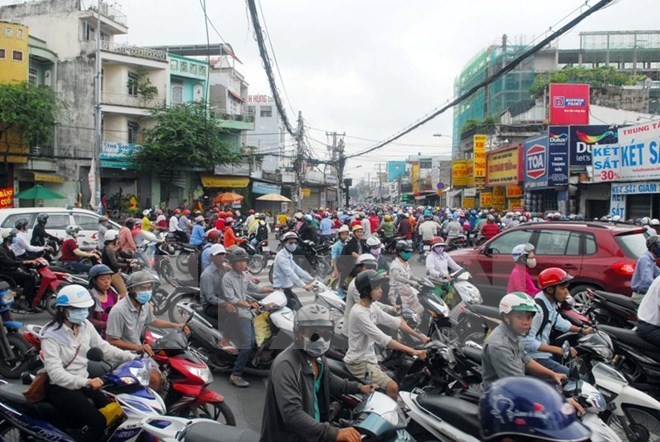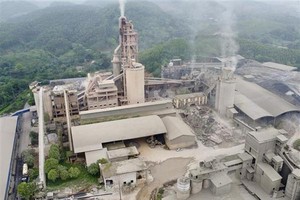
The figure was revealed by Doan Ngoc Hai, head of the institute, which is under the Ministry of Health, during a workshop in Hanoi on the effects of noise on health and preventive measures, co-organised by the institute and its Japanese counterparts.
Noise pollution is a serious issue, particularly in urban areas and industrial zones where it often exceeds permitted levels, Hai said, adding that noise pollution – caused by traffic, factories, and construction sites – is affecting the quality of life.
He said noise ranks second after dust in affecting people’s health.
Noise does not stay accumulated in the environment, like dust and pollution from toxins, but it affects human beings just as badly and can have long-lasting consequences such as impaired hearing.
Noise pollution can also cause sleep disturbances, hypertension, coronary artery disease and cognitive decline in children, Hai noted.
A study conducted by the institute on 12 routes and intersections in Hanoi shows that the average daytime noise is 77.8 to 78.1 dBA (decibels), which exceeds the permissible standard of 7.8 to 8.1 dBA.
The average night-time noise is 65.3 to 75.7 dBA, which exceeds the standard of 10 to 20 dBA.
Ha Lan Phuong, deputy head of the institute’s health examination department, said that in order to reduce noise, the use of personal vehicles must be restricted and public transport must be enhanced.
Authorities must also be stricter with motor vehicle registration checks and pull vehicles off the road that don’t meet the permissible limits, Phuong said.
Companies in industrial zones should schedule periodic maintenance of their facilities, invest in good noise protection equipment and conduct periodic health check-ups for workers who are frequently exposed to high noise, he added.
























